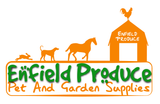Chillagoe Perlite is a lightweight, expanded volcanic glass with a wide range of applications. Its horticultural uses include soil aeration, drainage, seed raising, hydroponics, plant propagation, orchid mixes, cactus and succulent soil. Industrial uses include filtration, insulation, construction & fireproofing.
Perlite for Gardening:
Perlite is a popular growing medium or additive used to enhance soil aeration and drainage. When mixed with soil, it helps prevent soil compaction while retaining some moisture and allowing excessive water to drain away. This makes it ideal for most plants, especially those prone to root rot. Perlite is pH neutral and sterile, reducing the risk of disease. Perlite is especially popular for seed raising, propagating, re-potting, orchids, cacti, succulents and hydroponic growing.
Main Features:
- Chillagoe Perlite: The permanent soil conditioner.
- Australian-made and owned.
- Aerates and loosens the mix: The irregular shape of Chillagoe Perlite holds other media in the mix apart, allowing air to reach even the tiniest of roots.
- Holds moisture in the soil, allowing the plant to absorb more moisture more quickly.
- Permanent non-toxic: Made from a naturally occurring volcanic rock and will never rot or dissolve.
- Neutral pH and sterile: Ideal for horticultural use due to its neutral pH, sterility, and disease and weed-free status.
- Great soil insulation: Its tiny air bubbles provide excellent insulation properties, minimising temperature fluctuations in the soil.
- Very light in weight.
Disclaimer: Please note that the 25-litre and 50-litre bags have been repackaged from full-sized bags. These sizes come with no labelling or a re-sealed, open bag.
Please only select this option if you are in Sydney or the surrounding areas, such as the Central Coast, Newcastle, Wollongong, and some Blue Mountains areas, including Katoomba. If you are outside these areas, please select the option labelled Regional NSW and Interstate listed below.
|
Perlite Bead Size |
Description |
Size |
|
1.5 mm to 2.5 mm |
Chillagoe Perlite - Fine |
100 Litres |
|
1.6 mm to 3.0 mm |
Chillagoe Perlite - Medium |
100 Litres |
|
3.0 mm to 5.0 mm |
Chillagoe Perlite - Coarse |
100 Litres |
|
5.0 mm to 7.0 mm |
Chillagoe Perlite - Super Coarse |
50 or 100 Litres |
|
6.5 mm to 10 mm |
Chillagoe Perlite - Jumbo |
25, 50 or 100 Litres |
Perlite For Orchids:
Perlite is a lightweight volcanic mineral that can be used to improve drainage and aeration in orchid growing mediums.
To use perlite for orchids, it can be mixed with other materials, such as bark, charcoal, or sphagnum moss, in a ratio suited to your orchid type. A common mix might be a 50/50 mixture of bark and perlite. This combination keeps the roots well aerated and prevents waterlogging, a condition to which orchids are particularly sensitive. For epiphytic orchids, which naturally grow on trees, perlite is ideal for mimicking the airy root environment they prefer.
Use coarse-grade perlite for larger orchids, and fine-grade for seedlings or smaller species. Avoid using perlite on its own, as it does not retain enough moisture or provide structure for orchid roots. Always use clean, horticultural-grade perlite, and repot orchids every 1–2 years to keep the medium fresh and healthy. Perlite can also be added to existing mixes to improve drainage in heavy or compacted media.
Frequently Asked Questions:
Q. What is the weight per cubic metre of the Jumbo perlite?
A. Each 100-litre bag weighs approximately 6 kg. One cubic metre (1,000 litres) would weigh approximately 60 kg.
